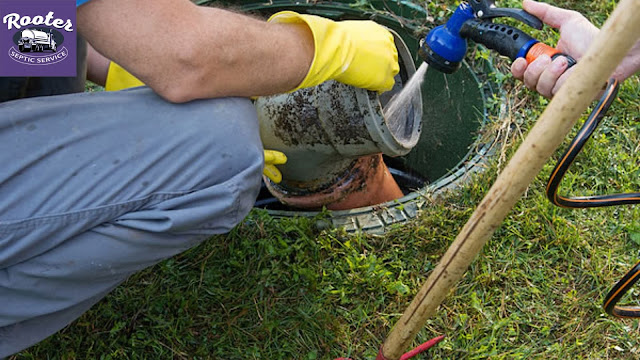Understanding the Impact of Household Chemicals on Your Septic System
Introduction:
Maintaining a healthy septic system is crucial for the proper functioning of your home's wastewater disposal system. While many homeowners are aware of the importance of regular septic pumping and maintenance, they often overlook the impact that household chemicals can have on their septic systems. In this blog post, we will delve into the effects of household chemicals on septic systems, shedding light on the potential risks and providing practical tips for minimizing damage. At Rooter Septic Services, we are committed to educating homeowners about septic system care, so you can rely on our expertise throughout this blog.
The Role of a Septic System:
Before diving into the impact of household chemicals, let's briefly understand the role of a septic system. A septic system is an underground wastewater treatment structure that processes and purifies household sewage. It consists of a septic tank, where solids settle and decompose, and a drainfield, where the liquid wastewater is further treated by soil filtration. This natural process helps protect the environment and prevents contamination of water sources.
The Potential Risks of Household Chemicals:
Disruption of the Microbial Balance:
Septic systems rely on a delicate balance of bacteria and enzymes to break down organic waste. However, certain household chemicals can disrupt this balance, inhibiting the microbial activity necessary for proper waste decomposition. Chemicals such as bleach, antibacterial soaps, and strong disinfectants can kill beneficial bacteria, impeding the system's ability to function effectively.
Harmful Effects on Drainfield Soil:
Septic systems rely on the drainfield's soil to naturally filter and treat the liquid wastewater. Chemicals like pesticides, herbicides, and excessive use of cleaning agents can seep into the soil, damaging its structure and reducing its ability to absorb and treat wastewater. This can lead to clogged drainfields, sewage backups, and even system failure.
Corrosion of Septic System Components:
Certain chemicals, including harsh solvents, paint thinners, and some cleaning agents, can corrode the septic system's components. This corrosion weakens pipes, tanks, and other crucial elements, leading to leaks, system malfunctions, and costly repairs. It's essential to avoid introducing such corrosive substances into your septic system.
Tips for Minimizing Chemical Impact on Your Septic System:
Choose Septic-Safe Cleaning Products:
When purchasing cleaning products, opt for those labeled as septic-safe or environmentally friendly. These products are specifically designed to be biodegradable and less harmful to the microbial balance in your septic system. Avoid using excessive amounts of cleaners, and remember that natural alternatives like vinegar and baking soda can be effective for many cleaning tasks.
Dispose of Hazardous Chemicals Properly:
Improper disposal of hazardous chemicals can pose a significant risk to your septic system. Never pour motor oil, paints, pesticides, or any other toxic substances down the drain or toilet. These chemicals can harm the environment and contaminate your groundwater. Instead, take them to designated collection sites in your area.
Conserve Water:
Excessive water usage can overload your septic system and hinder its ability to function optimally. Install water-saving devices such as low-flow toilets and aerated faucets to reduce water consumption. Additionally, spreading out household chores, such as laundry, throughout the week can help prevent overwhelming your septic system with a sudden influx of water.
Conclusion:
Understanding the impact of household chemicals on your septic system is vital for maintaining its longevity and efficiency. By being mindful of the chemicals you use, choosing septic-safe products, and properly disposing of hazardous substances, you can protect your septic system and avoid costly repairs. At Rooter SepticServices, we are dedicated to assisting homeowners in maintaining healthy septic systems. If you require professional assistance, including septic pumping in Acworth, our expert team is ready to provide reliable service.
Remember, the proper care and maintenance of your septic system will not only benefit you but also contribute to the overall health of the environment. By adopting these practices and making informed choices regarding household chemicals, you can ensure the long-term functionality and efficiency of your septic system.
At Rooter Septic Services, we understand the significance of a well-maintained septic system, and we are here to support you every step of the way. Contact us today for all your septic system needs.





Comments
Post a Comment